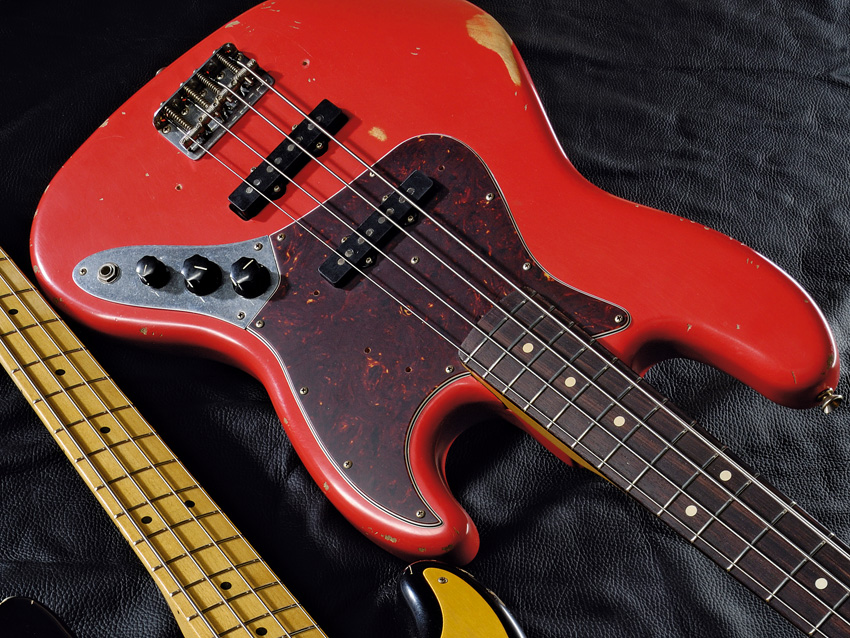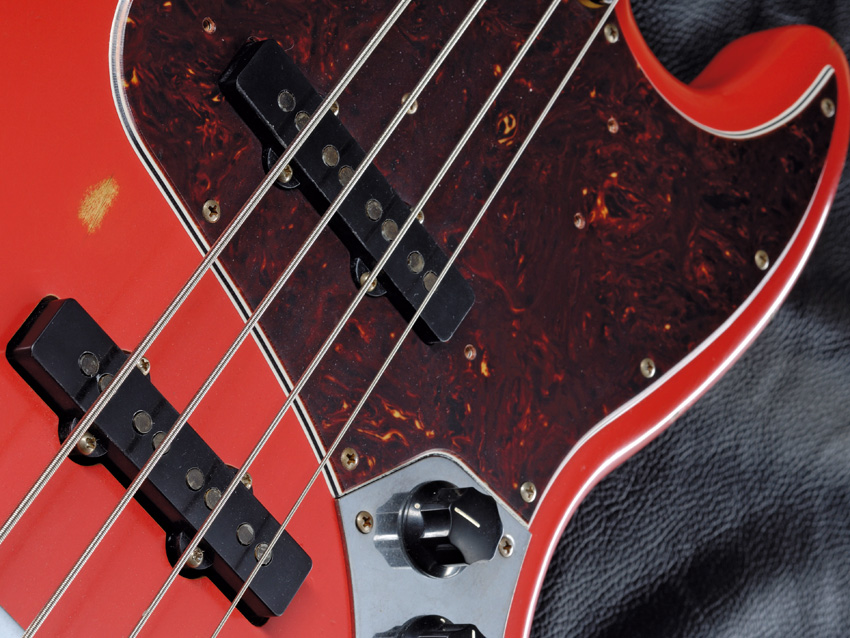MusicRadar Verdict
If you lust after a well-used vintage Jazz bass but simply can't afford it, the Road Worns are the answer. And trust us, they sound just as good as they look.
Pros
- +
The look, feel and sounds of an old friend.
Cons
- -
Not every one will be repared to pay extra for the ageing.
MusicRadar's got your back

Fender Road Worn '60s Jazz Bass

Fender Road Worn '60s Jazz Bass
The care and attention paid to the recently reviewed Road Worn guitars from Fender was mightily impressive, and left bassists keen to see how Precision and Jazz versions might turn out. Our wait is over.
The Road Worn series basses are not presented as faithful reproductions of classic models, more a combination of some of the favoured elements that were around during their specified production eras.
Just four models are available: two Precisions and two Jazz basses in two colours apiece. Nitrocellulose 'lacquer' is used on both bodies and necks, but it's interesting that Fender has chosen a fairly matt body finish - most of the genuinely old and bruised basses that we've seen (and owned) still retain a gloss to the remaining finish.
"Whether it's worth paying nearly twice as much to get a beaten-up-looking nitro-finished instrument, rather than a brand spanking new one, is open to debate."
Mind you, over time this finish will burnish up to a soft gloss. That aside, these are cleverly aged and even with close scrutiny the effect is very convincing. The Jazz has a three-ply tortoiseshell plate, rosewood fingerboard and a Fiesta red finish. There's also a three-colour sunburst option.
'60s Jazz
With its attractive offset body and sleeker neck, the Jazz Bass obviously evolved from the Precision, but if Leo Fender ever thought it would make the Precision obsolete he was very much mistaken.
Although the scale length is the same, the body shape and resulting keener balance makes this a very different player. There's also a sense of sophistication about the Jazz, even unplugged, giving it a different stylistic and sonic intent. We think our Fiesta red example is very cool, but we feel the three-tone 'burst will be the more popular choice.
What did come as a surprise to us is that as much as we truly love the Road Worn Precision, when playing these two particular examples back to back, it's this Jazz that wins in terms of overall feel.
Want all the hottest music and gear news, reviews, deals, features and more, direct to your inbox? Sign up here.
From the very moment you pick it up it just feels 'right'. It becomes part of you and, call us deluded if you like, but in this Road Worn presentation it already feels like an old friend.
Sounds
It may lack the overall brute force and thumping delivery of a P-bass but it scores a winner with its tonal sensitivity and finesse.
Leo Fender was smart enough to realise that producing a bass with a pair of P-bass split-coils would not produce the subtlety that a pair of single-coils can. The sheer area effected by a split-coil's magnetic field means it's impossible to truly focus the sound.
So in order to maximise the sounds available at the two different pickup positions, simpler single-coil pickups were the obvious - and very successful - choice.
There can be no denying that the Jazz has a much wider tonal spread than its older sibling just by using one pickup, or the other, or both full-on together. But there's a lot more to discover here than just these settings.
Slowly rotate first one volume then the other and, as the pickups intermix, you'll discover a series of settings where the sound seems to fold, something like you get with an envelope filter.
These are the glorious 'sweet spots' where the sound hollows out and gets funky in distinct contrast to the sound of the Precision. These tonal acrobatics are what attracts players to the Jazz, and once bitten nothing else will do.
Whether it's worth paying nearly twice as much to get a beaten-up-looking nitro-finished instrument, rather than a brand spanking new one, is open to debate. All we can say is despite its infancy the illusion is dramatic and effective - this feels like an old trusty partner after just hours of playing.
However, it's a pity that once again Fender doesn't provide the cover plates or thumb-rest that were included with the original design, even though the screw holes are all here!
Individual beauty is definitely in the eye of the beholder, but this instrument surely represents the ultimate in attainable shabby chic.
Guitarist is the longest established UK guitar magazine, offering gear reviews, artist interviews, techniques lessons and loads more, in print, on tablet and on smartphones
Digital: http://bit.ly/GuitaristiOS
If you love guitars, you'll love Guitarist. Find us in print, on Newsstand for iPad, iPhone and other digital readers
